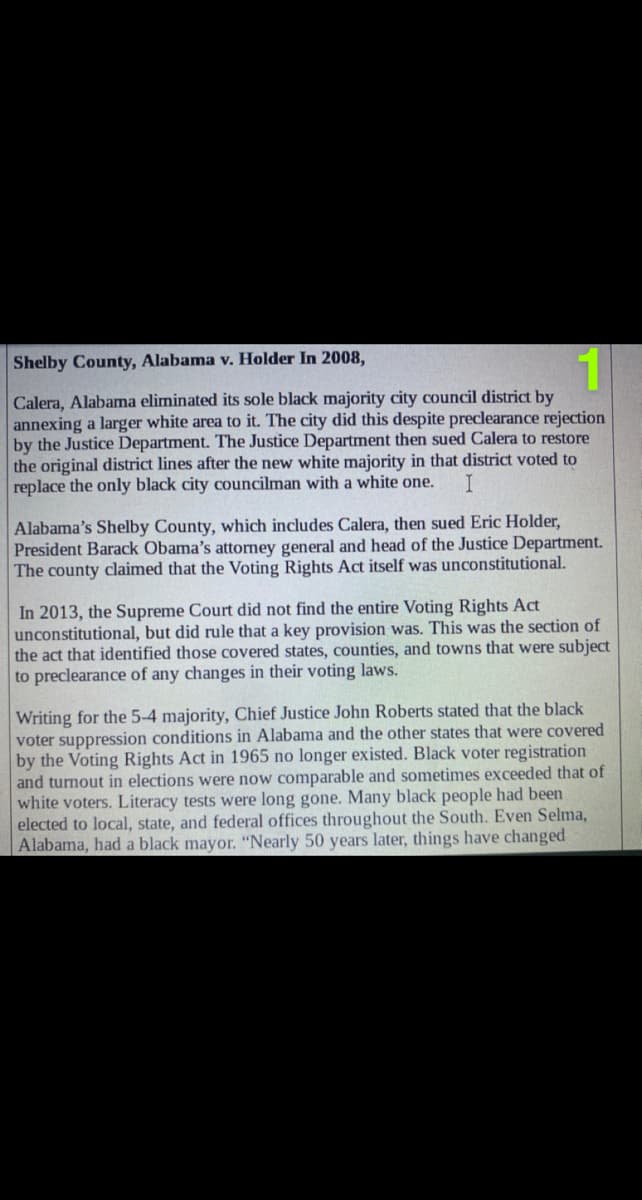1.Do you agree with Chief Justice Roberts or Justice Ginsburg in the Shelby County decision that ended preclearance of voting changes by the states covered by the Voting Rights Act? Why?
1.Do you agree with Chief Justice Roberts or Justice Ginsburg in the Shelby County decision that ended preclearance of voting changes by the states covered by the Voting Rights Act? Why?
Related questions
Question
What’s the answer to question 1 and 2?

Transcribed Image Text:Shelby County, Alabama v. Holder In 2008,
Calera, Alabama eliminated its sole black majority city council district by
annexing a larger white area to it. The city did this despite preclearance rejection
by the Justice Department. The Justice Department then sued Calera to restore
the original district lines after the new white majority in that district voted to
replace the only black city councilman with a white one.
Alabama's Shelby County, which includes Calera, then sued Eric Holder,
President Barack Obama's attorney general and head of the Justice Department.
The county claimed that the Voting Rights Act itself was unconstitutional.
In 2013, the Supreme Court did not find the entire Voting Rights Act
unconstitutional, but did rule that a key provision was. This was the section of
the act that identified those covered states, counties, and towns that were subject
to preclearance of any changes in their voting laws.
Writing for the 5-4 majority, Chief Justice John Roberts stated that the black
voter suppression conditions in Alabama and the other states that were covered
by the Voting Rights Act in 1965 no longer existed. Black voter registration
and turnout in elections were now comparable and sometimes exceeded that of
white voters. Literacy tests were long gone. Many black people had been
elected to local, state, and federal offices throughout the South. Even Selma,
Alabama, had a black mayor. "Nearly 50 years later, things have changed

Transcribed Image Text:1.Do you agree with Chief Justice Roberts or Justice Ginsburg in the Shelby
County decision that ended preclearance of voting changes by the states
covered by the Voting Rights Act? Why?
2. Which one of the measures to expand the vote do you think is the best?
Why?
Expert Solution
This question has been solved!
Explore an expertly crafted, step-by-step solution for a thorough understanding of key concepts.
This is a popular solution!
Trending now
This is a popular solution!
Step by step
Solved in 2 steps
